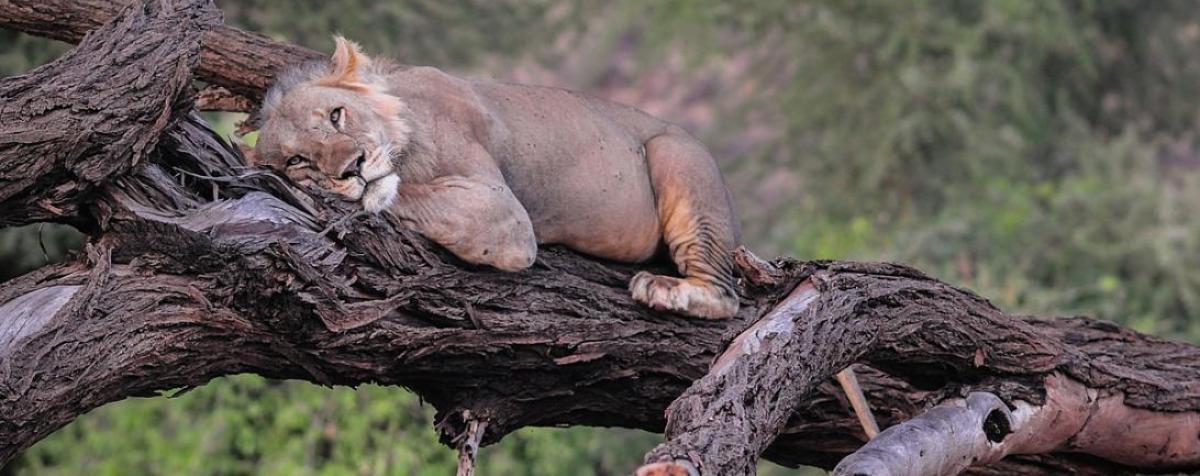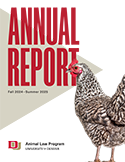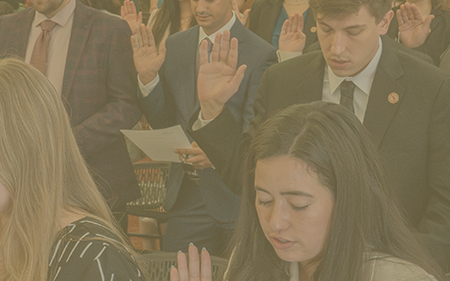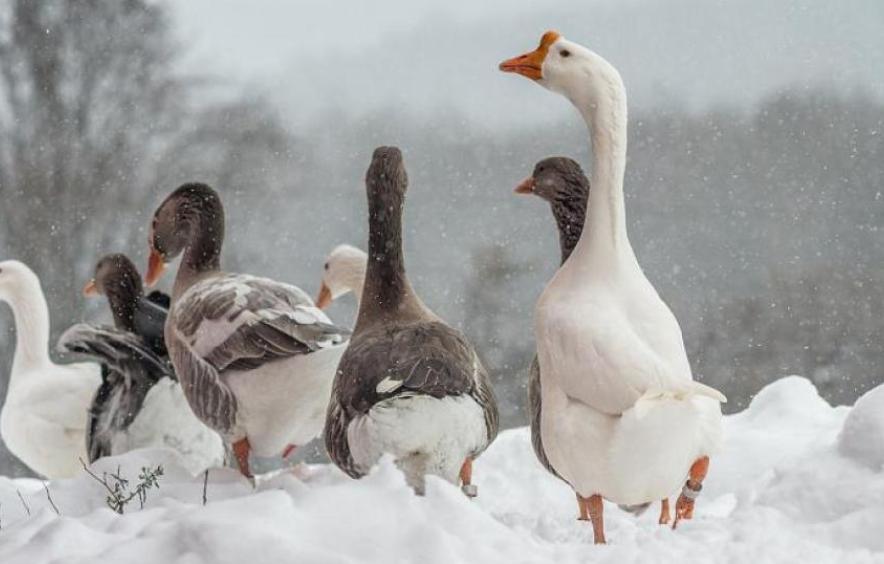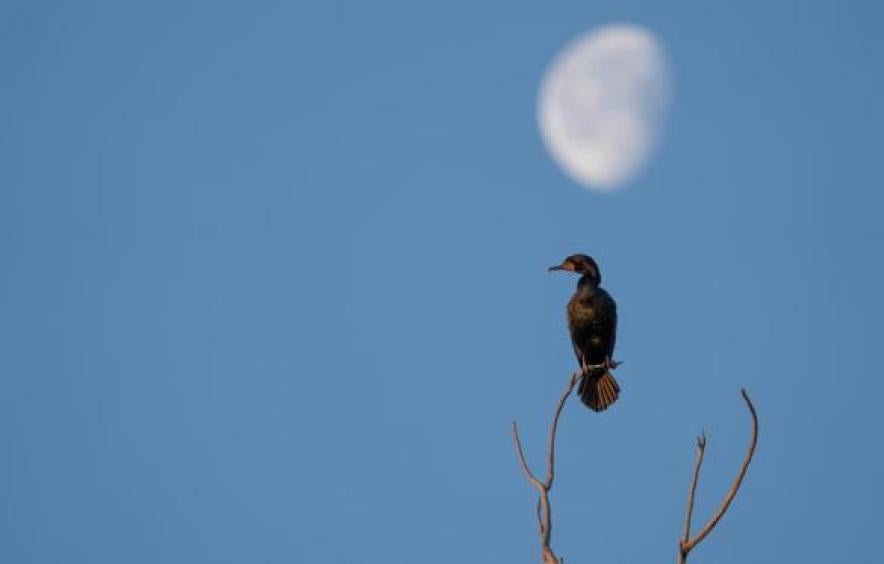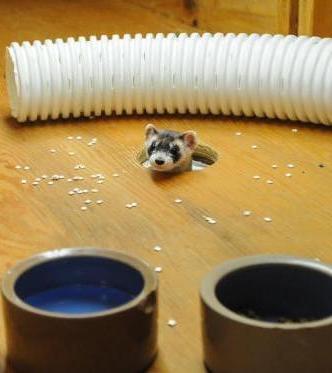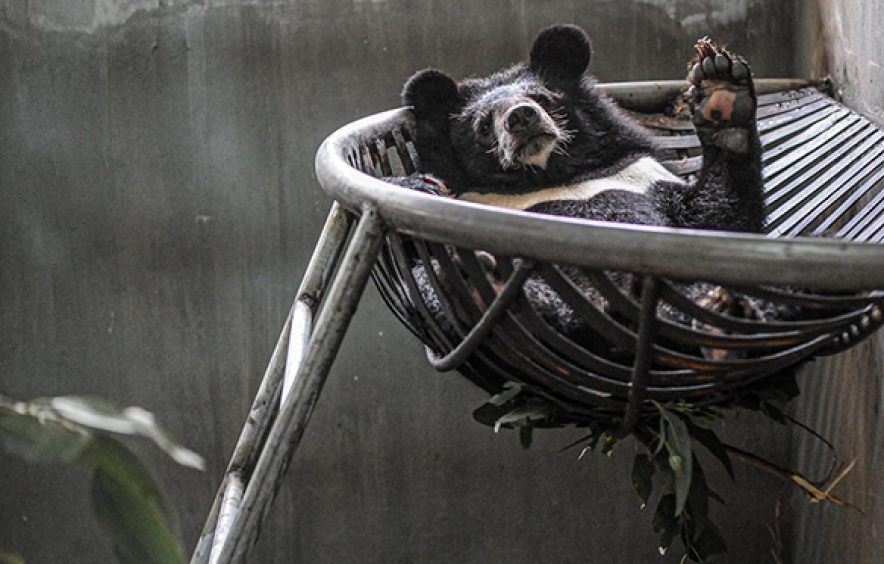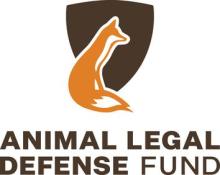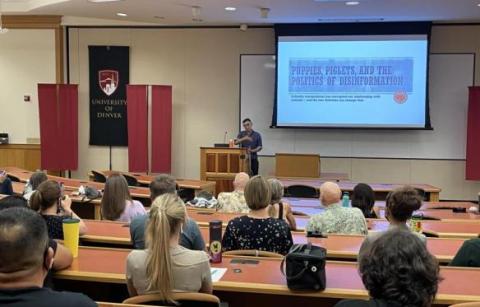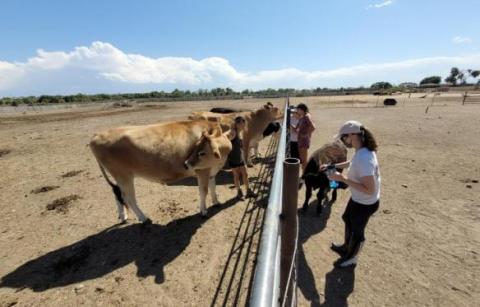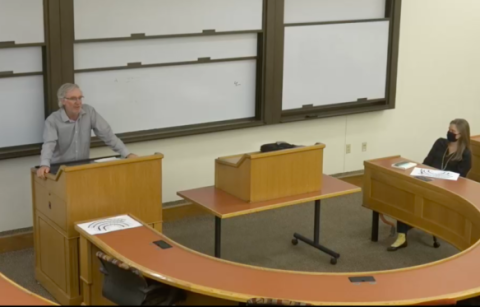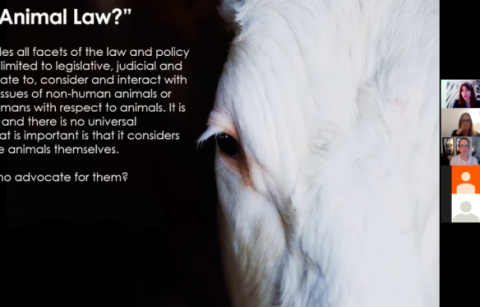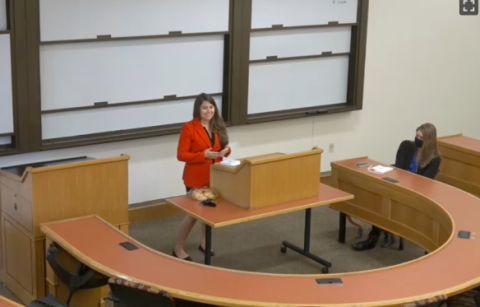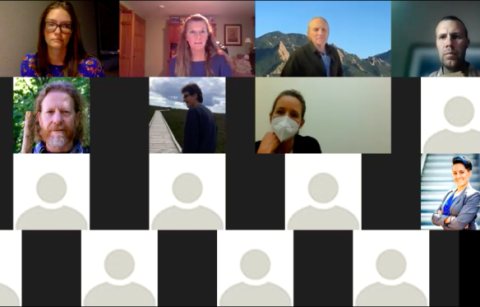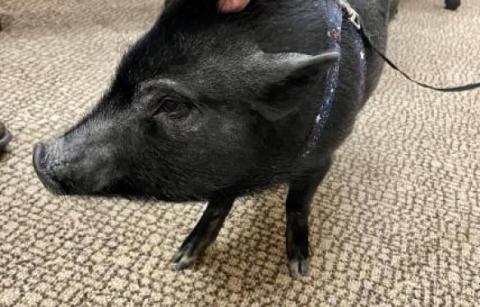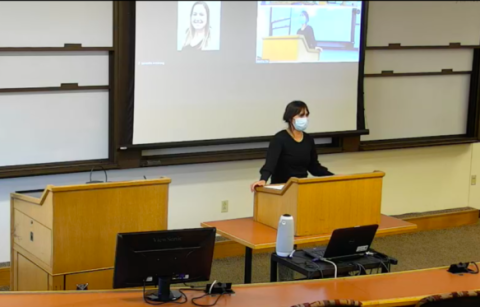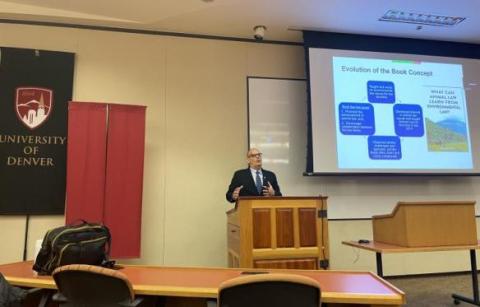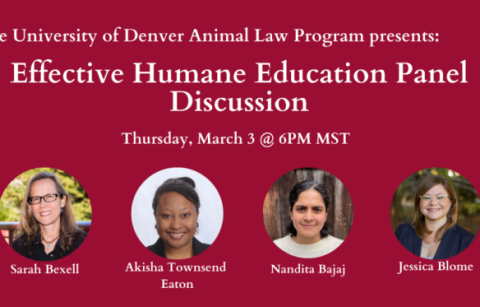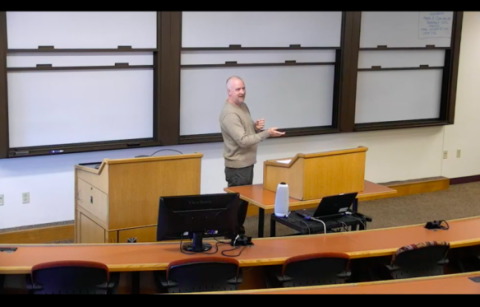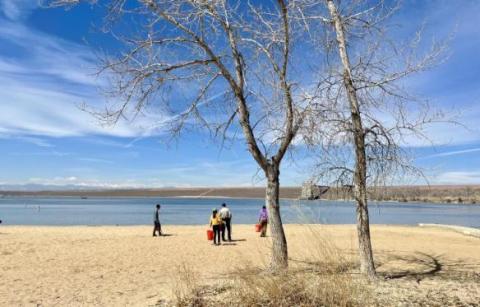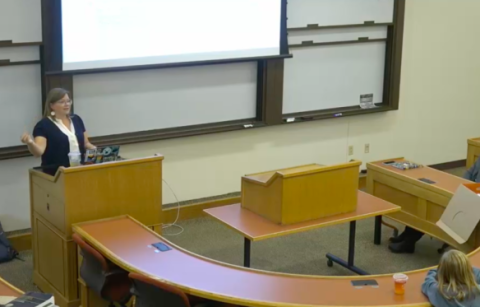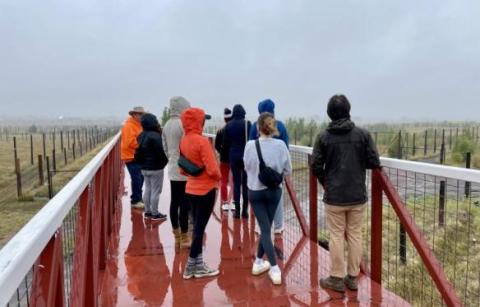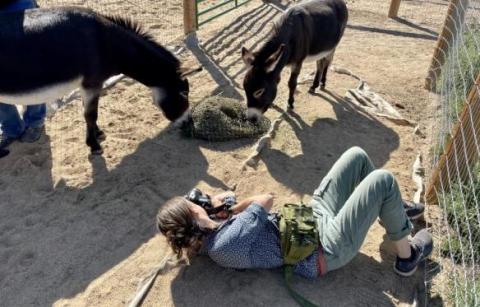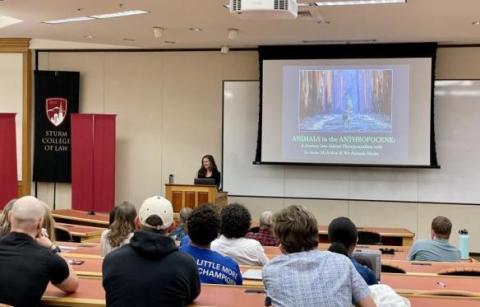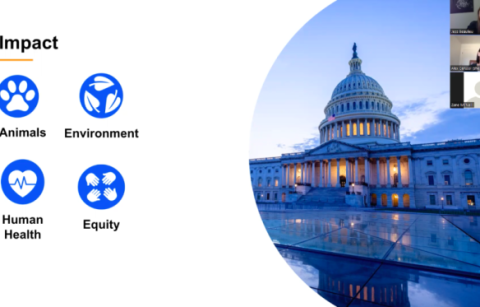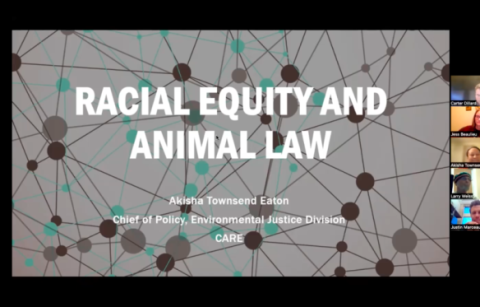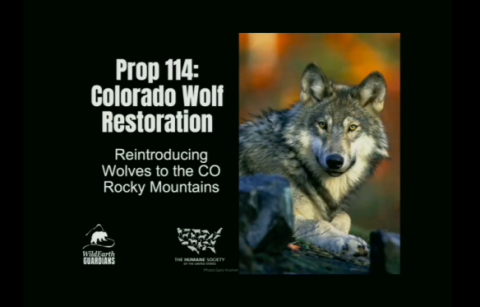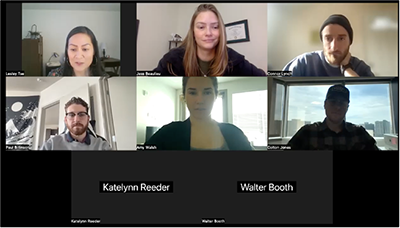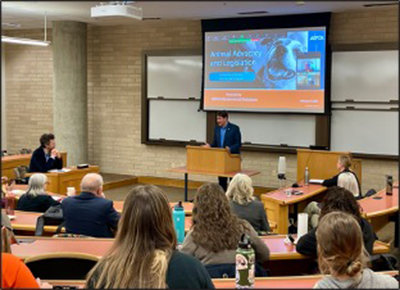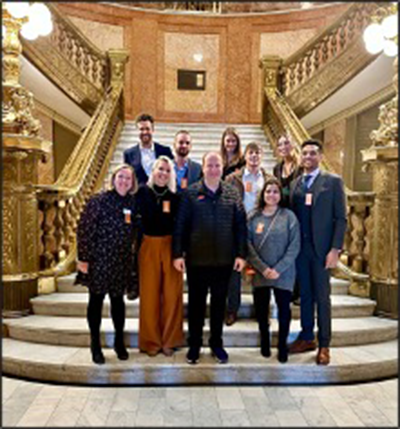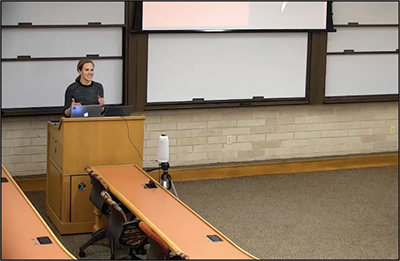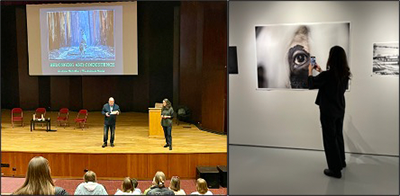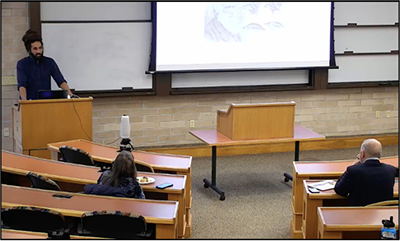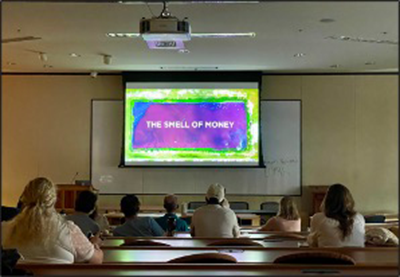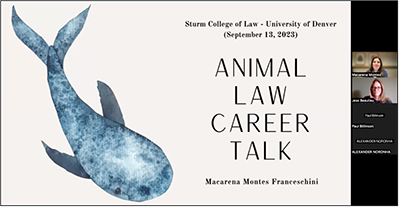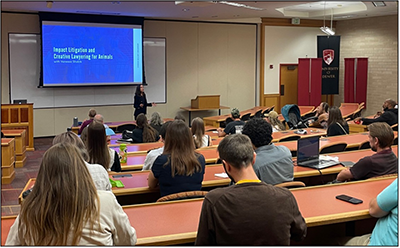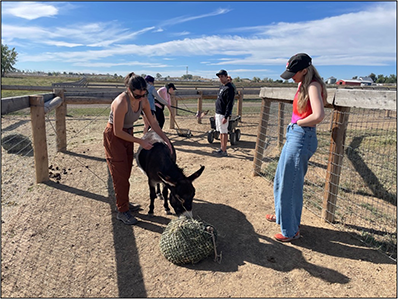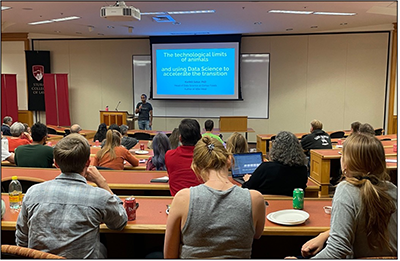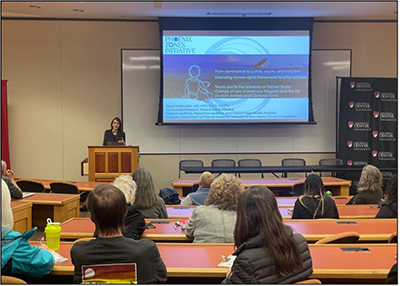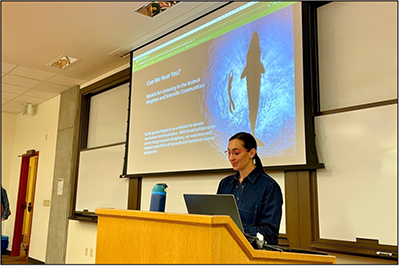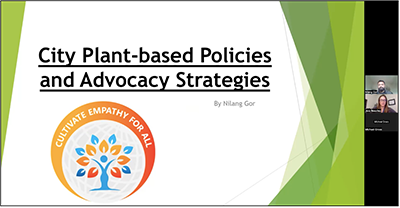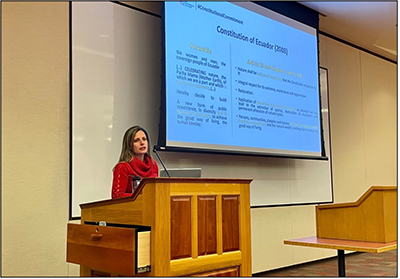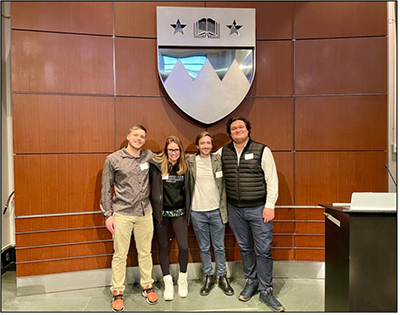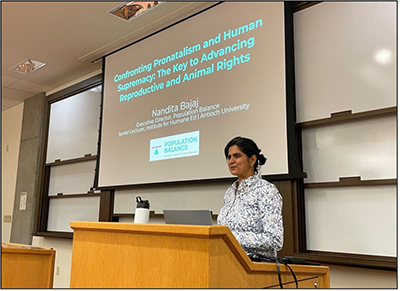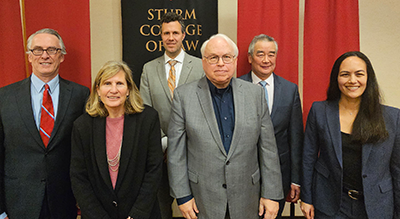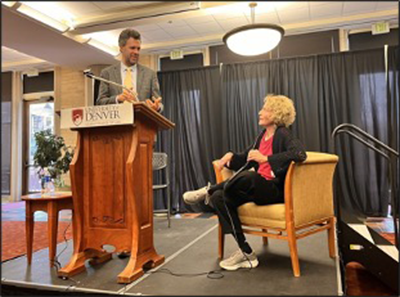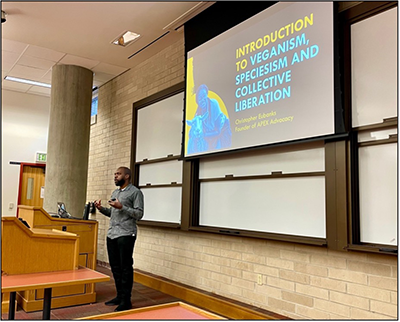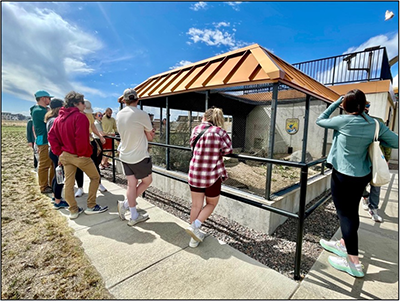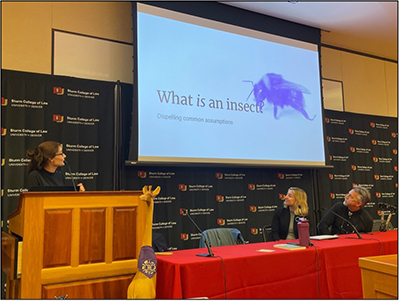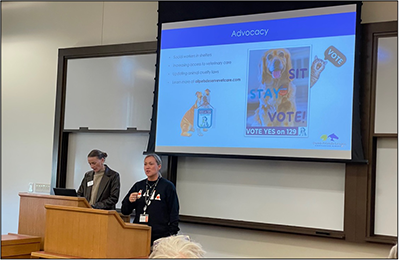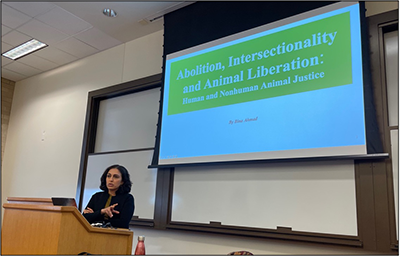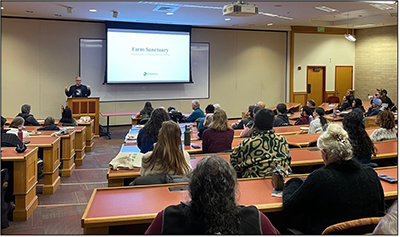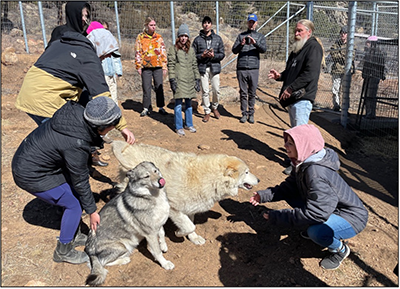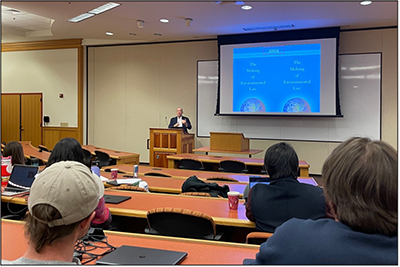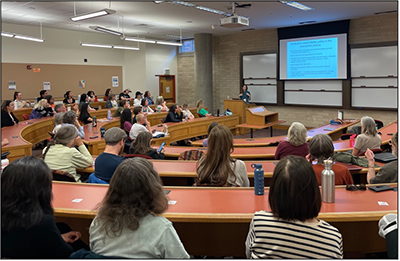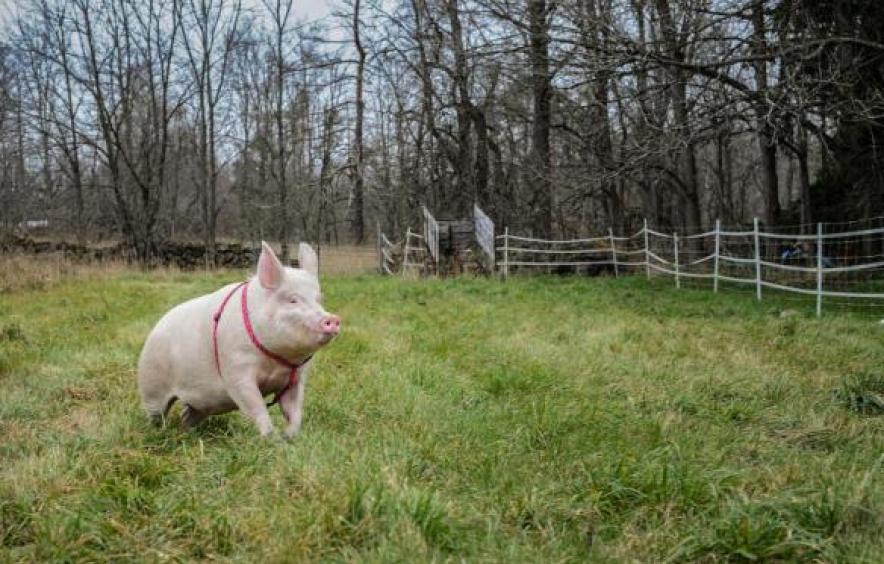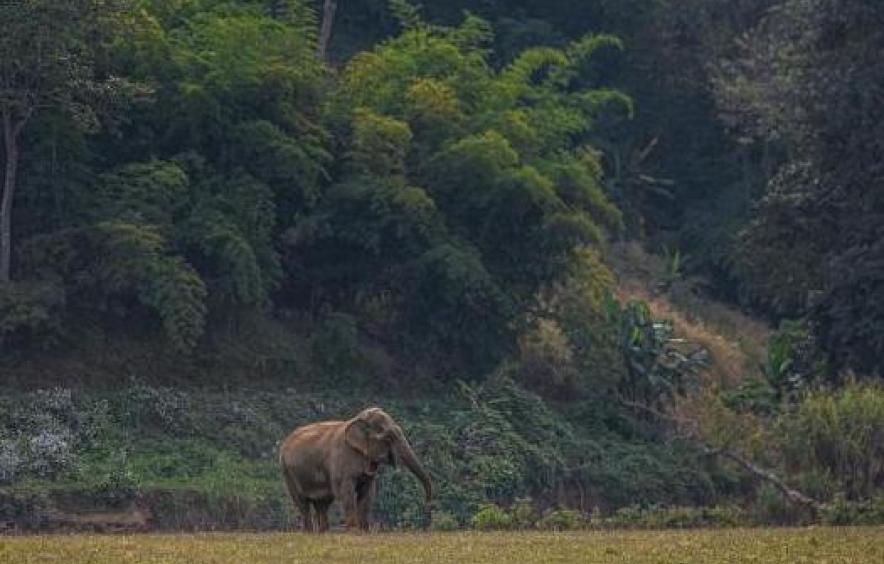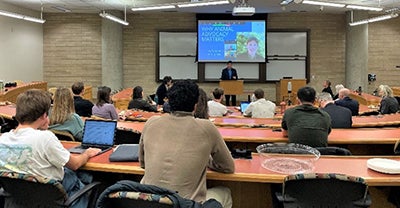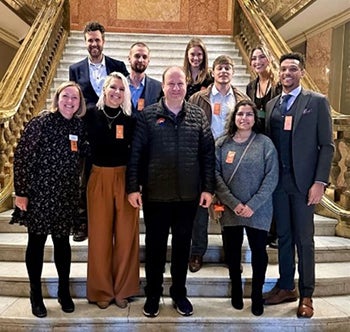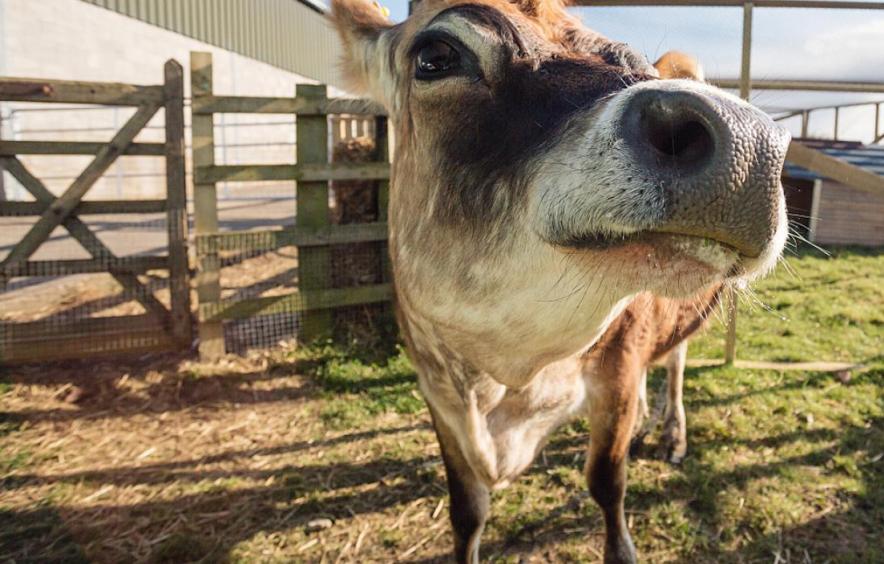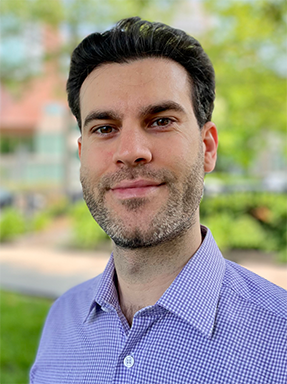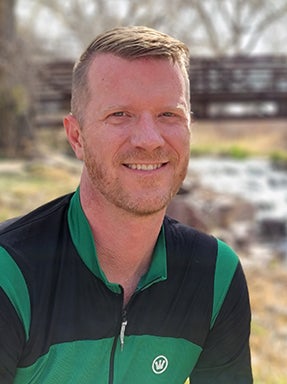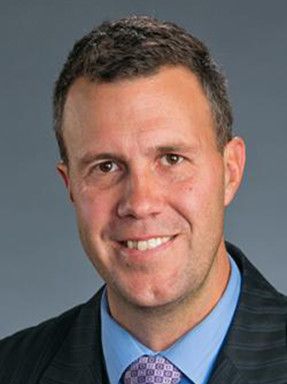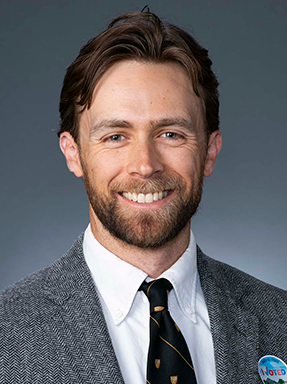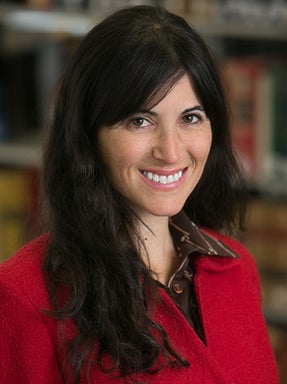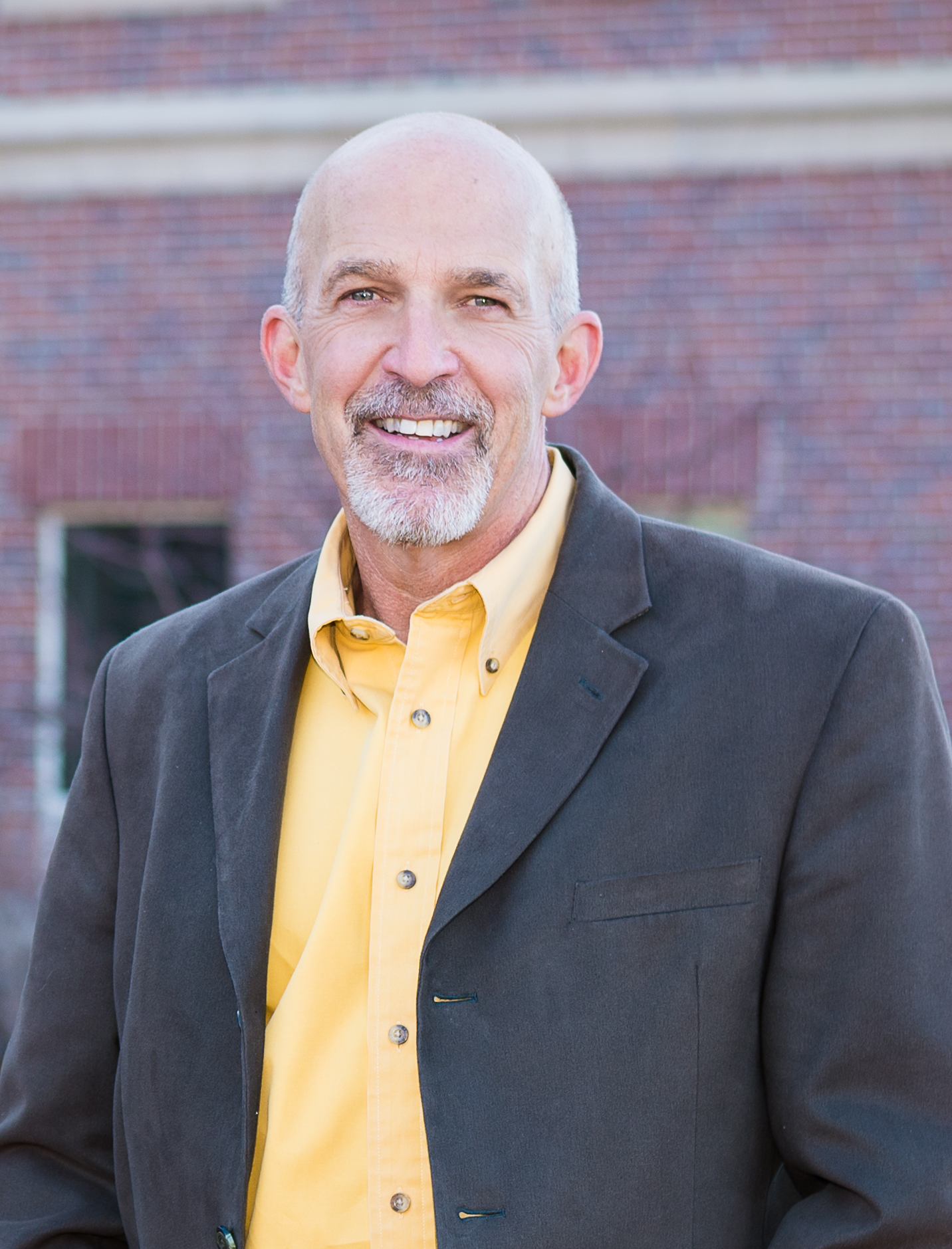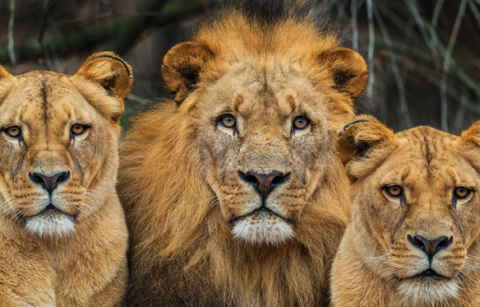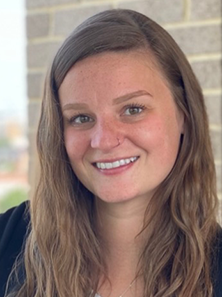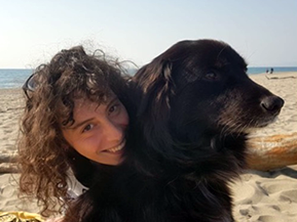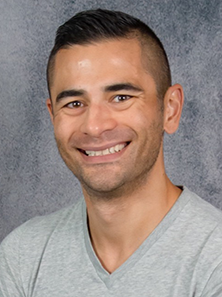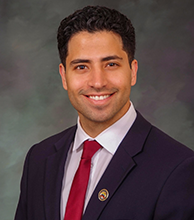Animal Law
The University of Denver Animal Law Program is the only animal law program in the Rocky Mountain Region of the United States. In collaboration with similar programs across the country, as well as local and national attorneys, we seek to educate the next generation of animal law advocates, and in turn, for those advocates to protect the well-being of non-human animals in the United States and around the world. We provide educational and hands-on opportunities in a wide variety of animal law fields, engaging with the legal and moral issues surrounding the use of animals for food, entertainment, experimentation, and fashion.
Formally launched in 2021, the DU Animal Law Program is founded on a commitment to three ideals. First, we believe the law does not adequately protect the lives, interests, and needs of animals. Despite a growing body of work documenting the sentience, cognition, and autonomy of animals, non-humans are routinely killed or harmed unnecessarily. Second, we believe that attorneys and the law have an important role to play in protecting animals and facilitating a pro-animal social change agenda. Third, we believe academics and research should create space to challenge our assumptions about society and the law's intersection with animals. The creation and dissemination of quality research should catalyze changes in law and policy in the service of protecting animals.
Learn more:
Animal Law Program 2024–2025 Annual Report
The DU Sturm College of Law is listed as one of Kaplan's "Top 10 Law Schools for Animal Law."
View RankingsCurricular Offerings
Sampling of Animal Law Courses
University of Denver Student Animal Legal Defense Fund
Since its founding in 1979, the Animal Legal Defense Fund has been fighting to protect the lives and well-being of animals via the legal system. Today, their groundbreaking efforts are supported by hundreds of dedicated attorneys and more than 100,000 members nationwide. DU boasts a robust Student Chapter of the ALDF, which works to educate the DU community about forms of institutionalized animal abuse, understand how the law can be used to combat animal cruelty, and support the greater Denver community in its efforts to improve animal welfare.
Start Date
End Date
Sorry, there are no scheduled events this month or for the provided criteria above.
Advisors and Fellows
We foster an ambitious vision for the future of DU's Animal Law Program, and to help us achieve it, we draw upon a dynamic group of animal law experts and community leaders who serve as visiting fellows and members of our Board of Advisors. This group assists by providing research support, increasing the Animal Law Program's public visibility, and expanding our impact throughout Colorado and across the nation. Learn more about our visiting fellows and advisory board members in the profiles below, and discover the ways they are helping to advance the Animal Law Program and educate the next generation of animal rights attorneys.
Our Board of Advisors
-
Akisha Townsend Eaton
Chief of Policy, Environmental Justice Division, Companions and Animals for Reform and Equity (CARE)
Akisha Townsend Eaton began her animal law career in 2009 as an animal welfare fellow in the United States Senate. She has since served as a legislative attorney, policy advisor and managing attorney at a variety of national and international animal protection and lifesaving organizations. She currently serves as Chief of Policy, Environmental Justice Division, at Companions and Animals for Reform and Equity, a human and animal well-being organization.
Akisha received her law degree from Georgetown University Law Center and her bachelor's degree from Stanford University, where she graduated with distinction.
-
Frances Chrzan
Federal Policy Manager, Government Affairs & Public Policy, Mercy for Animals
Frances Chrzan earned her BA at Indiana University and her JD from Lewis & Clark Law School. Frances is certified in animal law, served as Editor-in-Chief of Animal Law Review, and upon graduation she moved to Washington, DC, to engage in federal policy. She began her federal policy career advocating for animals used in experiments, and currently works on food system reform and farmed animal protection as Federal Policy Manager at Mercy for Animals. She enjoys vegan cooking and spending time with her rescue dogs and ferrets.
-
Giulia Malerbi
Global Policy Lead, Aquatic Life Institute
Inspired by the principles of effective altruism and aware that welfare means much more than just good health, Giulia decided to dedicate her competencies, skills, and time to improving the lives of animals raised for food worldwide. She is currently working as Global Policy Lead at the Aquatic Life Institute and sits on the advisory board of Connect for Animals.
When engaging with stakeholders, Giulia focuses on the importance of making the interlocutors understand what "animal welfare" means beyond false beliefs, stereotypes, or emotional illusions. Her strength lies in molding different points of view to offer new perspectives with a view toward identifying exploitable opportunities.
Giulia holds a degree in Animal Breeding Techniques and an MSc degree in Animal Welfare Science, Ethics and Law. In her free time, she enjoys being outdoors, playing sports, and playing music.
-
Trent Morton
Staff Attorney, Legal Affairs Department, Mercy for Animals
Trent Morton is a Staff Attorney at Mercy for Animals. Previously, he was Corporate Counsel at Hydro-Gear LP and an Associate at Faegre Baker Daniels LLP (now, Faegre Drinker Biddle & Reath LLP). Trent is a member of the Outrun the Sun Board of Directors, the Brebeuf Jesuit Preparatory School Alumni Board of Directors, the Connect for Animals Board of Advisors, the Indianapolis Bar Association IP Section Committee, and the Society for American Baseball Research – Oscar Charleston Chapter Board. Morton graduated with a BS in Nuclear Engineering from Purdue University and a JD from the Indiana University Maurer School of Law.
Fellows
-
Manny Rutinel
Manny Rutinel is a Representative for the Colorado State House, representing the great people of Adams County. Manny received his J.D. from Yale Law School. After law school, Manny was an Attorney for Earthjustice. Before law school, Manny was an economist for the US Army Corps of Engineers, where he also served as a First Responder in Puerto Rico after Hurricane Maria. Manny holds a Master’s in Economics from Johns Hopkins University and a Bachelor’s in Microbiology from the University of Florida.
-
Will Potter
Distinguished Journalist in Residence and Civil Rights Fellow
Will Potter is a Civil Rights Fellow and DU's first Distinguished Journalist in Residence. He is working closely with the Animal Law Program, and available to talk with prospective animal law students.
Interview with Will PotterTell us about yourself and your background.
Hi there! I'm an investigative journalist, author, and scholar who focuses on attacks on civil rights post-9/11, particularly how protest movements have been criminalized in the name of fighting "terrorism." I started my career as a newspaper reporter, and ended up on this particular "beat" after my own run-ins with the FBI. For more than 20 years I have documented political repression against social justice movements, and have been an advocate internationally against anti-activist and anti-whistleblower legislation and the rise of authoritarianism globally.
What is your new role with the University?
I'm really excited to be joining the University of Denver as the first Distinguished Journalist in Residence and Civil Rights Fellow. In this capacity I look forward to working with colleagues in the Animal Law Program and throughout the University on the intersection of animal rights and other civil rights movements, and sharing my scholarship on political repression so that it might assist social movements globally that are under attack.
Why the University of Denver and the Animal Law Program?
My work as a journalist and advocate has focused on using my scholarship to make a real-world impact and positive social change. The University of Denver, as an academic community, has forefronted public engagement and student-centered pedagogy. And the Animal Law Program in particular, under Justin Marceau's leadership, has demonstrated groundbreaking work, from the legal fight against "ag-gag" anti-whistleblower laws to innovative working groups that are bringing together scholars from the animal protection movement alongside leading thinkers on prisons and policing. I couldn't be more thrilled to have the opportunity to continue collaborating with people like Justin, Alan Chen, Laura Rovner, and other law school faculty at the intersection of these civil rights issues.
What are you working on right now?
I'm working on a new book project called Little Red Barns. It grew out of my drone investigations of factory farm pollution. It digs deep into the myth and symbol of the red barn, and how it has been used to mask systems of control that are toxic to both animals and humans. I'm also working with a major TV network on a new series that involves my work on Communications Management Units — secretive, discriminatory prison units on U.S. soil for "terrorists." And as much as possible, I aid in activist defense by collaborating and consulting on legal and policy efforts.
Anything you'd like to add?
If you're a potential student and you're on the fence about law school or whether the University of Denver is right for you, come talk to me! Really. Email me at will@willpotter.com or message me on Twitter @will_potter, and I'd be happy to chat!
Contact
Animal Law Program
-
animallawprogram@law.du.edu
-
303-871-6761
-
Sturm College of Law
